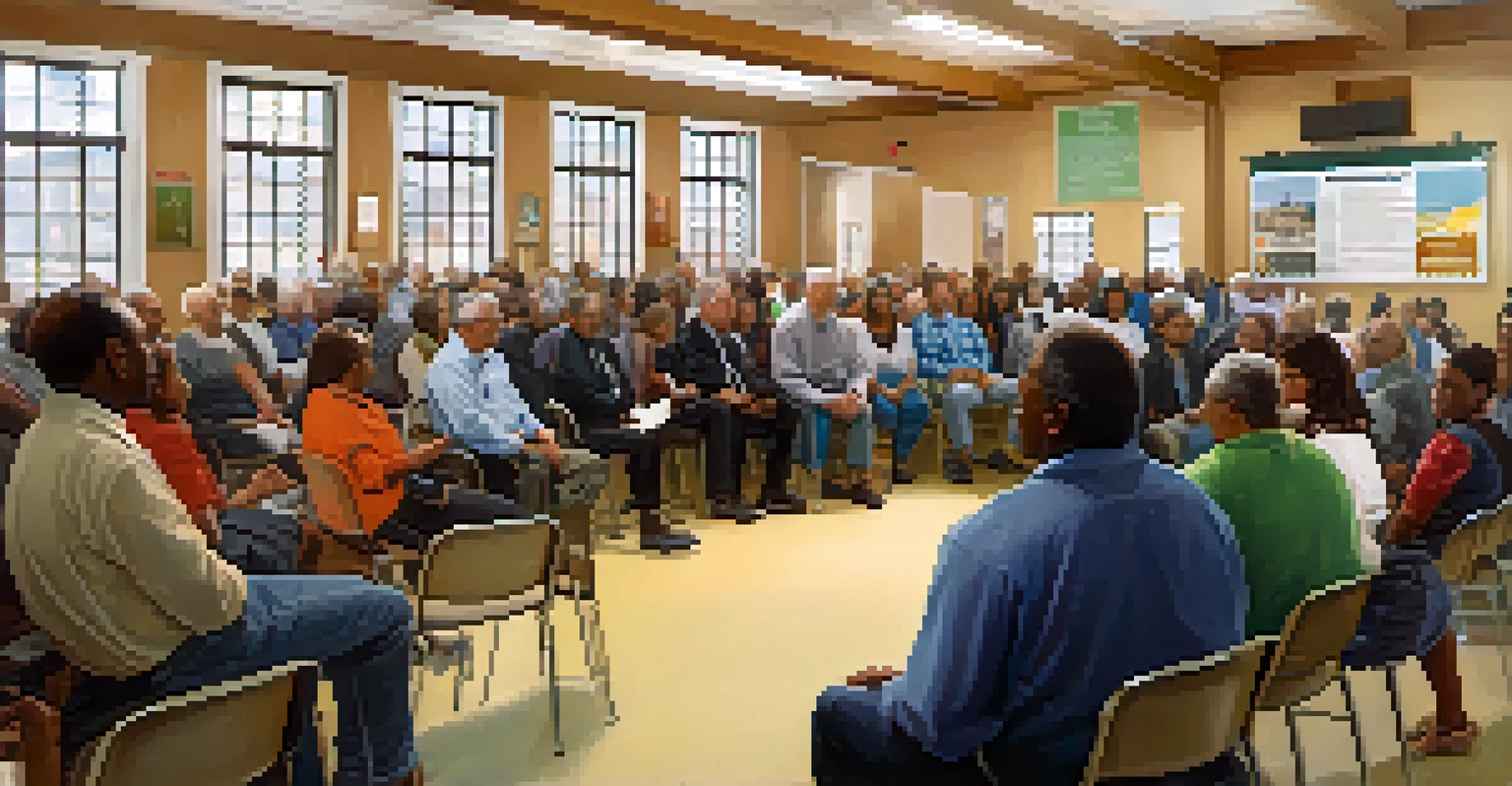Top 10 Essential Tips for Emergency Preparedness in Jersey

Understand the Risks Specific to Jersey
Every area has its unique set of risks, and Jersey is no exception. Consider factors like flooding, storms, or even power outages that could affect your community. Understanding these potential threats is the first step in effective emergency preparedness.
By failing to prepare, you are preparing to fail.
For instance, if you live near the coast, you might be more vulnerable to storm surges or high tides. By recognizing these specific hazards, you can tailor your preparation efforts to address them directly. This could mean having sandbags ready for flooding or knowing evacuation routes in advance.
Take some time to research local history and talk to your neighbors about their experiences. This shared knowledge can be invaluable in developing a comprehensive approach to keeping you and your family safe.
Create a Family Emergency Plan
Having a family emergency plan is crucial for ensuring everyone's safety during a crisis. Start by discussing various scenarios with your family, such as fire, flooding, or severe weather, and outline how you would respond to each situation. Make sure everyone knows how to react and where to meet if you get separated.

Designate a reliable contact outside of Jersey that can serve as a point of communication. In stressful situations, having someone to reach out to can ease anxiety and help coordinate family members. Ensure everyone has the contact information saved in their phones or written down.
Understand Local Risks
Recognizing specific hazards in Jersey, such as flooding and storms, is essential for effective emergency preparedness.
Regularly review and practice your emergency plan. Just like a fire drill, rehearsing your plan can help everyone feel more secure and confident when the real thing happens.
Build an Emergency Supply Kit
An emergency supply kit is a must-have for any household. Start with the basics: water, non-perishable food, a flashlight, batteries, and a first-aid kit. Aim for supplies that can sustain your family for at least three days, as emergencies can disrupt services unexpectedly.
The time to repair the roof is when the sun is shining.
Consider adding personal items like medications, important documents, and pet supplies if you have furry family members. Each item should be tailored to your family's unique needs, ensuring that you're fully prepared for various situations.
Finally, don’t forget to check and update your kit regularly. Items can expire or be used up, so a quick inventory every few months can keep you ready for anything.
Stay Informed with Local Alerts
Staying informed is vital during an emergency, and local alerts can provide timely information about unfolding situations. Subscribe to weather updates, emergency alerts, and local news channels to stay in the loop. This way, you can react quickly if a storm or other emergency is approaching.
Many communities offer text or email notifications that can alert you to severe weather, road closures, or other urgent news. Make sure to sign up for these services to receive real-time updates directly on your phone.
Create a Family Emergency Plan
Discussing various emergency scenarios with your family and establishing a communication plan can enhance safety during a crisis.
Additionally, follow local social media accounts for instant updates and community support. Being in the know can make all the difference when seconds count.
Know Your Evacuation Routes
In the event of an emergency, knowing your evacuation routes can save precious time. Familiarize yourself with the roads and pathways leading out of your area and identify multiple routes in case one is blocked. This knowledge ensures you aren’t scrambling last minute when time is of the essence.
Consider taking a local map and marking your routes, as well as any potential safe spots along the way. Share this map with your family members so everyone is prepared, and practice driving these routes, especially if you have children.
Remember, traffic can become congested during emergencies, so knowing alternative routes can help you avoid delays and reach safety faster.
Establish a Communication Plan
In the chaos of an emergency, communication can break down. Establishing a solid communication plan ensures that you and your loved ones can stay connected. Designate a meeting place and a primary contact person outside of your immediate area to coordinate with if you get separated.
Each family member should know how to reach this contact and have their details saved. Consider how you might communicate if phone lines are down – using social media or messaging apps can sometimes be more reliable.
Stay Informed and Connected
Subscribing to local alerts and knowing evacuation routes ensures timely responses and effective communication during emergencies.
Regularly discuss this plan with your family, and practice checking in with each other. This will not only help everyone feel more secure but can also reduce panic during high-stress situations.
Get Involved in Community Preparedness
Emergency preparedness doesn’t have to be a solo endeavor. Getting involved in community programs can provide you with valuable resources and knowledge, while also strengthening neighborhood ties. Attend local workshops or join community response teams to learn more about emergency planning.
By collaborating with others, you can share experiences, establish mutual aid agreements, and foster a sense of community resilience. This collective knowledge can be crucial during an emergency when local resources might be stretched thin.

Plus, these connections can lead to friendships and support networks that enhance your community’s overall safety and readiness.
Stay Calm and Encourage Others
In the face of an emergency, staying calm is essential. Panic can spread quickly, so try to maintain composure and encourage others to do the same. Use deep breathing techniques or focus on actionable steps to help alleviate anxiety.
Remind your family and friends of your emergency plans and the steps you’ve taken to prepare. This can instill confidence and encourage a collective effort in staying safe.
Your calm demeanor can serve as a stabilizing force, inspiring others to take proactive measures, whether it’s checking their supplies or reviewing their own plans.